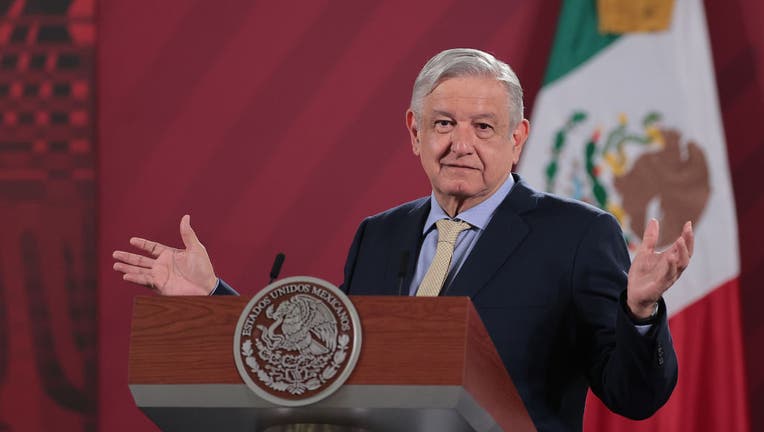4,000 residents flee town in southern Mexico after armed gangs start shooting, burn homes

President of Mexico Andres Manuel Lopez Obrador gestures during his daily morning briefing on June 10, 2020 in Mexico City, Mexico. (Photo by Hector Vivas/Getty Images)
Over 4,000 residents have fled a town in the southern Mexican state of Chiapas after armed gangs shot up the town and burned many homes last week.
Residents recounted spending days trapped in their homes before army troops and state police showed up over the weekend to allow them to flee.
Residents of Tila, roughly 462 miles southeast of Mexico City, fled after the violent assault by armed gangs. State prosecutors described it as the largest mass displacement in Chiapas since 1997.
Some residents spent days trapped in their homes before federal forces arrived.
Photos showed people fleeing with only purses, small backpacks, or shoulder bags, the Associated Press reported.
Who's behind the violence in Chiapas?
Mexican President Andrés Manuel López Obrador depicted the assault as "a conflict between the very same people" of Tila, referring to a longstanding land dispute among farmers.
Víctor Gómez, a resident, told the Associated Press that many people were too afraid to go outside until federal forces arrived.
"A lot of people left with what they had on their backs, without money, without clothing," he said.
Observers stated that criminal gangs and political interests were behind the clash. The Digna Ochoa Human Rights Center identified a group called the "Autonomos," linked to drug trafficking, as responsible for the violence. At least two people were confirmed dead, and 17 buildings were burned, according to state prosecutors.
How is the government responding?
López Obrador said food is being supplied to the camps and claimed "things have calmed down." He added that the government aims to start negotiations with the groups "to reach an agreement so that people can return to their communities."
Battles between rival drug cartels have affected several townships in Chiapas near the Guatemala border, a main route for smuggling drugs and migrants. In 1994, the Zapatista indigenous rights movement staged a brief armed uprising in Chiapas, displacing thousands. In 1997, the massacre of 45 indigenous villagers in Acteal due to land and political conflicts also caused mass displacement. The state has also seen slower, yearslong expulsions of residents due to land or religious disputes.
The Associated Press contributed to this story.

